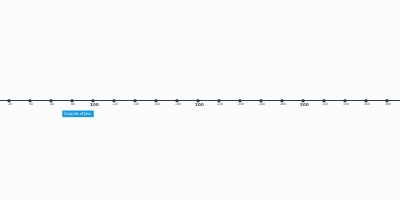Siege of Antioch (21 Okt 1097 Jahr – 3 Jun 1098 Jahr)
Beschreibung:
The crusader army, meanwhile, marched on to Antioch, which lay about halfway between Constantinople and Jerusalem. Described by Stephen of Blois as "a city great beyond belief, very strong and unassailable", the idea of taking the city by assault was a discouraging one to the crusaders.[72] Hoping rather to force a capitulation, or find a traitor inside the city—a tactic that had previously seen Antioch change to the control of the Byzantines and then the Seljuq Turks—the crusader army set Antioch to siege on 20 October 1097.[73] During the almost eight months of the siege, they were forced to defeat two large relief armies under the leadership of Duqaq and Fakhr al-Mulk Radwan.[74] Antioch was so large that the crusaders did not have enough troops to fully surround it, and as a result it was able to stay partially supplied.[75] On 4 March 1098, relief arrived in the form of a Crusader fleet, the "Saxon Crusade", bringing much needed supplies from the west.In May 1098, Kerbogha of Mosul approached Antioch to relieve the siege. Bohemond bribed an Armenian guard named Firouz to surrender his tower, and in June the crusaders entered the city and killed most of the inhabitants.[76] However, only a few days later the Muslims arrived, laying siege to the former besiegers.[77] According to Raymond D'Aguilers, it was at this point that a monk named Peter Bartholomew claimed to have discovered the Holy Lance in the city, and although some were skeptical, this was seen as a sign that they would be victorious.[
On 28 June 1098, the crusaders defeated Kerbogha in a pitched battle outside the city, a victory caused by Kerbogha's inability to organize the different factions in his army.[78] While the crusaders were marching towards the Muslims, the Fatimid section of the army deserted the Turkish contingent, as they feared Kerbogha would become too powerful were he able to defeat the Crusaders. According to Christian eyewitnesses, an army of Christian saints came to the aid of the crusaders during the battle and crippled Kerbogha's army.
Stephen of Blois, a Crusade leader, was in Alexandretta when he learned of the situation in Antioch. It seemed like their situation was hopeless so he left the Middle East, warning Alexios and his army on his way back to France.[79] Because of what looked like a massive betrayal, the leaders at Antioch, most notably Bohemond, argued that Alexios had deserted the Crusade and thus invalidated all of their oaths to him. While Bohemond asserted his claim to Antioch, not everyone agreed (most notably Raymond of Toulouse), so the crusade was delayed for the rest of the year while the nobles argued amongst themselves. When discussing this period, a common historiographical viewpoint advanced by some scholars is that the Franks of northern France, the Provençals of southern France, and the Normans of southern Italy considered themselves separate "nations", creating turmoil as each tried to increase its individual status. Others argue that while this may have had something to do with the disputes, personal ambition among the Crusader leaders might just be as easily blamed.[56]
Meanwhile, a plague broke out, killing many among the army, including the legate Adhemar, who died on 1 August.[80] There were now even fewer horses than before, and worse, the Muslim peasants in the area refused to supply the crusaders with food. Thus, in December, after the Arab town of Ma'arrat al-Numan was captured following a siege, history describes the first occurrence of cannibalism among the crusaders.[81] Radulph of Caen wrote, "In Ma'arrat our troops boiled pagan adults in cooking pots; they impaled children on spits and devoured them grilled."[82] At the same time, the minor knights and soldiers had become increasingly restless and threatened to continue to Jerusalem without their squabbling leaders. Finally, at the beginning of 1099, the march restarted, leaving Bohemond behind as the first Prince of Antioch.
Zugefügt zum Band der Zeit:
Datum:
21 Okt 1097 Jahr
3 Jun 1098 Jahr
~ 7 months
